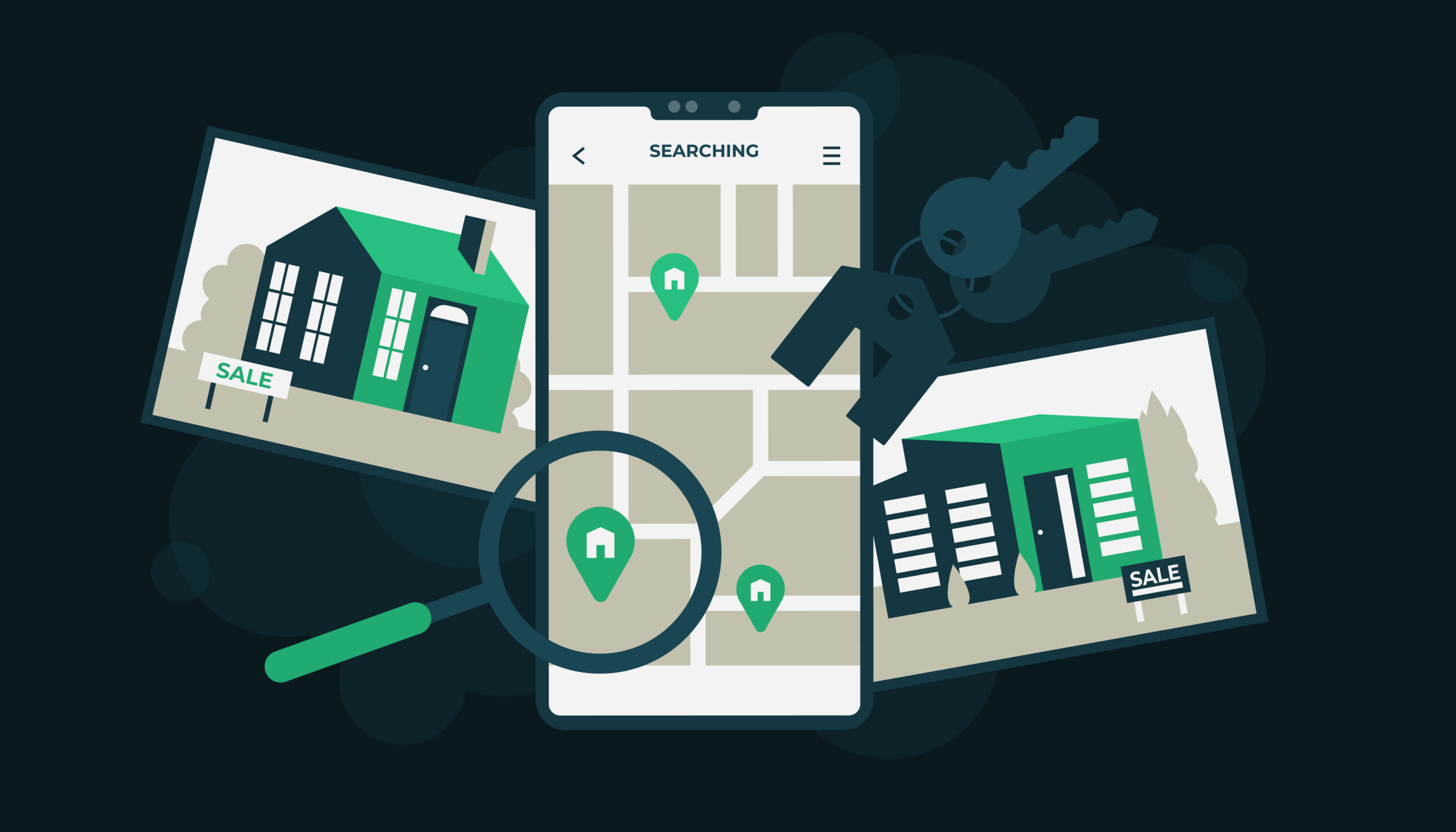Real estate is a dynamic sector with a variety of app development options for customer relationship management, task management, and communication. Agents must be competent in a variety of tasks, including client data verification, market analysis, financial management, and many others.
Real estate is a lucrative sector, despite the surge in home costs. As a result, it makes sense for the IT industry to digitize many parts of the trade. Creating real estate phone applications is a terrific approach to increasing both exposure and income in the property industry.
And, like any other business, real estate has a lot of room for app development. Everyone may benefit from applications, from customers to realtors.
A Real Estate Mobile App Must-Have Features:
It is vital to stay informed on trends and features and implement them into your app. We describe some fundamental and fashionable elements that should be included in your real estate app below.
User’s Signup/Login:
User orientation is the most basic aspect of real estate software, and it has to be as easy as feasible. There are three options for doing so: allowing access to social media, email, and phone verification.
You may allow people to sign up for your app using any of the options listed above. It will give consumers ease and flexibility, along with making the profile setup easier.
Business Profiles:
A wealth of information about the property is included in these profiles, including descriptions, pictures, videos, rich media, pricing information, value propositions, neighborhood details, owner details, and more.
Property profiles may also need to include the owner or agent’s phone number.
User Panel:
Users should be able to establish profiles in the app so that they may execute various activities within it. Distinct profiles should be created for different groups of people, for example, for the user, seller, and agent.
For example, the options offered for the buyer’s profile will be drastically different from those displayed for the agent’s profile. A buyer will be able to search for homes and store favorites, view specific listings in detail, send an inquiry, and so on. On the other hand, an agent would have access to his own listings, schedules, list of potential buyers, number of views on particular listings, advertising options, etc.
Categories and Filters:
Do you know what the most time-consuming aspect of searching for houses online is? It’s about finding the right property!
Customers need sophisticated search options if they want to make the process of finding properties easier. Add categories and filters to help consumers find homes that meet their needs.
Online tour:
A virtual tour or 3D walkthrough is a great way to give potential buyers a genuine sense of the home they want to purchase. Although images and videos are still an important part of the listing, virtual tours give customers an interactive platform where they can see the property from every angle without having to visit the house in person.
Listings:
Listing is yet another essential component of the real estate app. You must include a list of available homes in the listings, along with all pertinent information.
Users that wish to rent or sell their home should be able to easily add their listing.
Because the number of property listings will continue to increase, you will want a large database. Make sure the database or servers are flexible enough to support scale-up operations because more users and, consequently, more listings, will be added in the future. A solid database is essential for any real estate software.
Maps:
It isn’t easy to imagine a real estate app without this capability. Integrating maps into your app may help you give a wealth of useful information to your consumers.
You can show information about the chosen properties, including data and statistics, in addition to showing where the properties are. You may get information on crime rates, infrastructure, surrounding schools, average income, and the danger of natural catastrophes on government websites.
A professional real estate app developer, such as Imagination, can assist you with retrieving this information from government databases and displaying it on a map in your app.
Property Cost Estimators:
Price calculators are an excellent addition to any real estate mobile app. You can ask developers to include a custom cost estimator tool that will give clients an estimate of the total cost of the property. Check if the calculator is sufficiently detailed.
Depending on a number of factors, including the starting payment range, taxes, loan interest rate, and loan payback schedule, users should be able to estimate the final cost.
Favorites:
Users should be able to shortlist and store their favorite homes on your app. It greatly facilitates their decision-making process.
Push Notifications:
Push notifications are a great marketing tactic. This feature is essential to the long-term success of your real estate app. Push notifications enable you to maintain and stay top-of-mind with your customers. It is also beneficial for efficiently marketing your services. They can be used to contact potential customers or regularly disseminate business news. Users can also be notified when prices change or a new property is listed in a particular area.
However, in order to get the full benefits of push notifications, the messages must be tailored. You should only send relevant communications that are useful to the recipients.
Analytics:
Analytics is a critical component of every mobile application.
Whether you want to build a real estate marketplace where users can purchase, sell, or rent their homes or just an exclusive app for your company, you need to understand how your app is being used.
Analytics offers essential knowledge about how your app is operating and what needs to be improved. You may get useful information about users and their in-app activity, such as how much time they spend on a certain screen. With the help of this knowledge, you can choose better apps.
The Bottom Line:
An app may make or ruin any business. Therefore, get in touch with Zenkoders to create a top-notch Real Estate App Development that could give your business a competitive edge. However, apps have a lot to offer the real estate market in terms of tailoring searches and personalizing the online experience. Real estate applications, when used correctly, may automate and streamline procedures.


